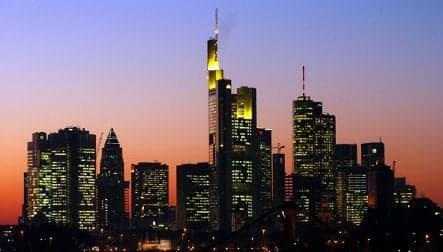Berlin working on a 'bad bank-lite' rescue plan

Germany is working on ways to help its banks get rid of toxic securities that have kept them wary about lending despite last year's €480-billion ($625-billion) rescue, a lawmaker said Thursday.
"Several solutions are currently being constructively studied in order to limit the amount of write-downs by banks," Otto Bernhardt, an MP in Chancellor Angela Merkel's conservative party who deals with financial affairs, told AFP. "The main issue is finding a way of helping banks further without leaving an open-ended bill for taxpayers to pick up," Bernhardt said.
He added, however, that there was "no chance at the moment" that Merkel's government would create a "bad bank" to absorb the huge amount of toxic assets still on banks' balance sheets.
Instead, they are working on a 'bad bank-lite' that would take on banks' bad assets but write down any loss in value once the assets mature, which in some cases would not happen for 50 years, business daily Handelsblatt reported.
German newspapers have cited a Bundesbank survey of 20 large German banks revealing that they have written off only around a quarter of their collective bad assets of some €300 billion.
Merkel's government rushed through last year's package in record time after the worst crisis in the global financial system since the 1930s left banks in Germany and around the world close to collapse.
Similar to efforts in other countries, it provides up to 400 billion euros in loan guarantees and as much as €80 billion in fresh capital.
But banks have been slow to make use of the scheme and firms already reeling from the global economic slump have complained they are unable to get enough loans - in other words, that the "credit crunch" is still here.
Guenther Merl, the head of the body in charge of the rescue fund, known as Soffin, resigned this week - officially for health reasons but media reports said he had differences with the government.
The biggest casualty so far has been Hypo Real Estate, the stricken property lender that has already been given more than €40 billion worth of government loan guarantees and which reportedly may yet be nationalised.
Commerzbank, the second largest lender, is set to be partially nationalised with Berlin taking a 25 percent plus one share stake in return for €10 billion in fresh capital.
Comments
See Also
"Several solutions are currently being constructively studied in order to limit the amount of write-downs by banks," Otto Bernhardt, an MP in Chancellor Angela Merkel's conservative party who deals with financial affairs, told AFP. "The main issue is finding a way of helping banks further without leaving an open-ended bill for taxpayers to pick up," Bernhardt said.
He added, however, that there was "no chance at the moment" that Merkel's government would create a "bad bank" to absorb the huge amount of toxic assets still on banks' balance sheets.
Instead, they are working on a 'bad bank-lite' that would take on banks' bad assets but write down any loss in value once the assets mature, which in some cases would not happen for 50 years, business daily Handelsblatt reported.
German newspapers have cited a Bundesbank survey of 20 large German banks revealing that they have written off only around a quarter of their collective bad assets of some €300 billion.
Merkel's government rushed through last year's package in record time after the worst crisis in the global financial system since the 1930s left banks in Germany and around the world close to collapse.
Similar to efforts in other countries, it provides up to 400 billion euros in loan guarantees and as much as €80 billion in fresh capital.
But banks have been slow to make use of the scheme and firms already reeling from the global economic slump have complained they are unable to get enough loans - in other words, that the "credit crunch" is still here.
Guenther Merl, the head of the body in charge of the rescue fund, known as Soffin, resigned this week - officially for health reasons but media reports said he had differences with the government.
The biggest casualty so far has been Hypo Real Estate, the stricken property lender that has already been given more than €40 billion worth of government loan guarantees and which reportedly may yet be nationalised.
Commerzbank, the second largest lender, is set to be partially nationalised with Berlin taking a 25 percent plus one share stake in return for €10 billion in fresh capital.
Join the conversation in our comments section below. Share your own views and experience and if you have a question or suggestion for our journalists then email us at [email protected].
Please keep comments civil, constructive and on topic – and make sure to read our terms of use before getting involved.
Please log in here to leave a comment.